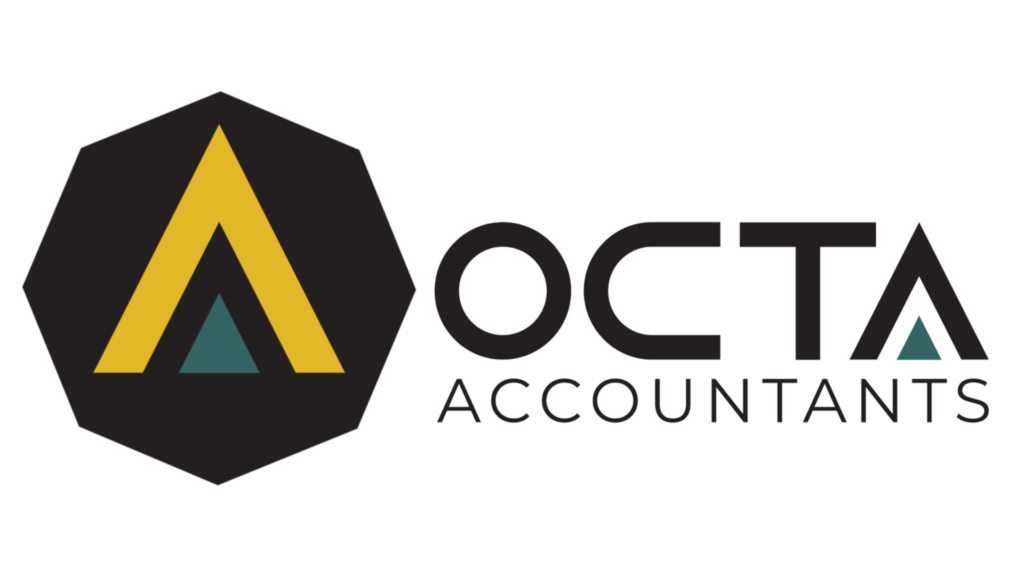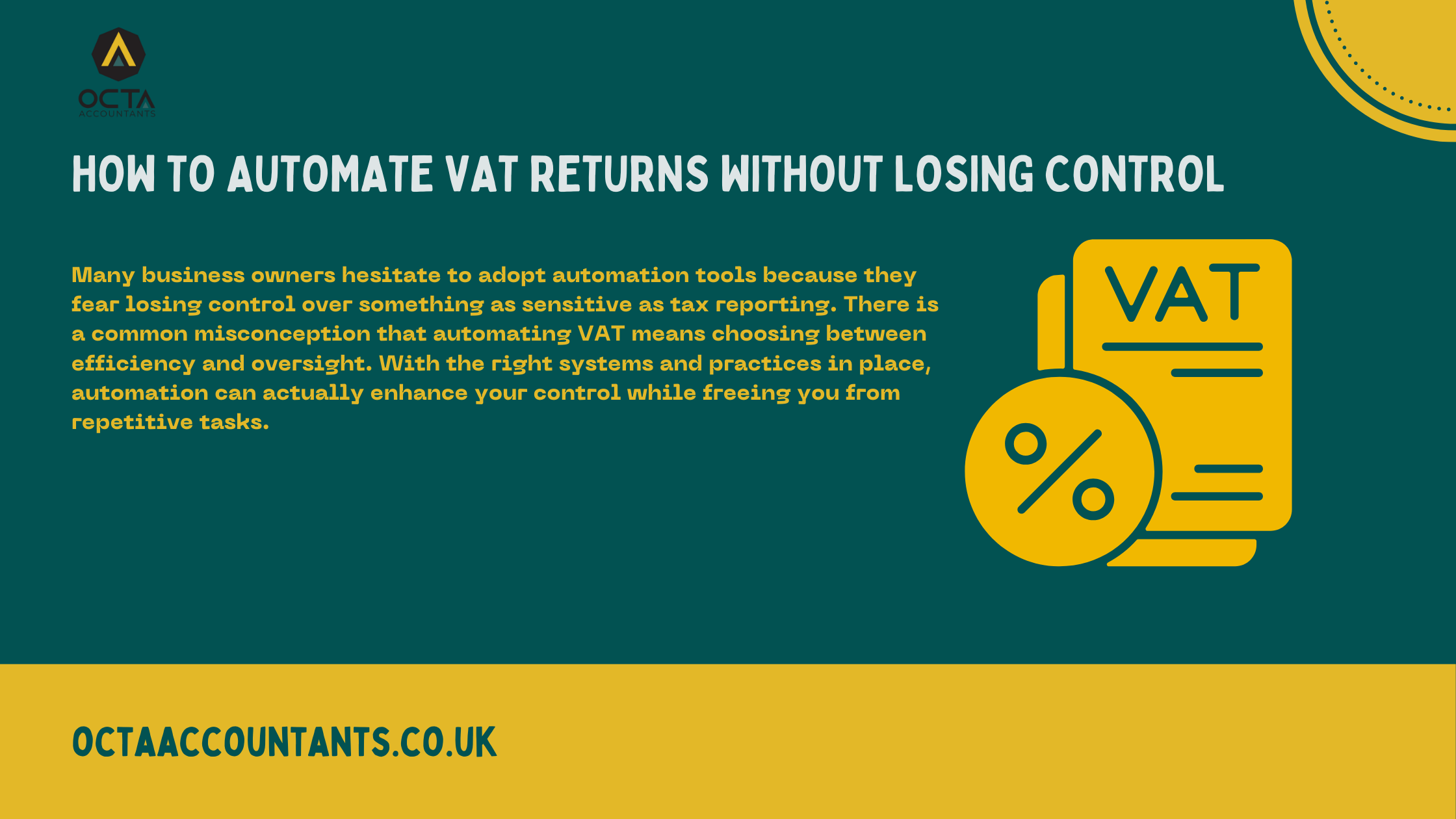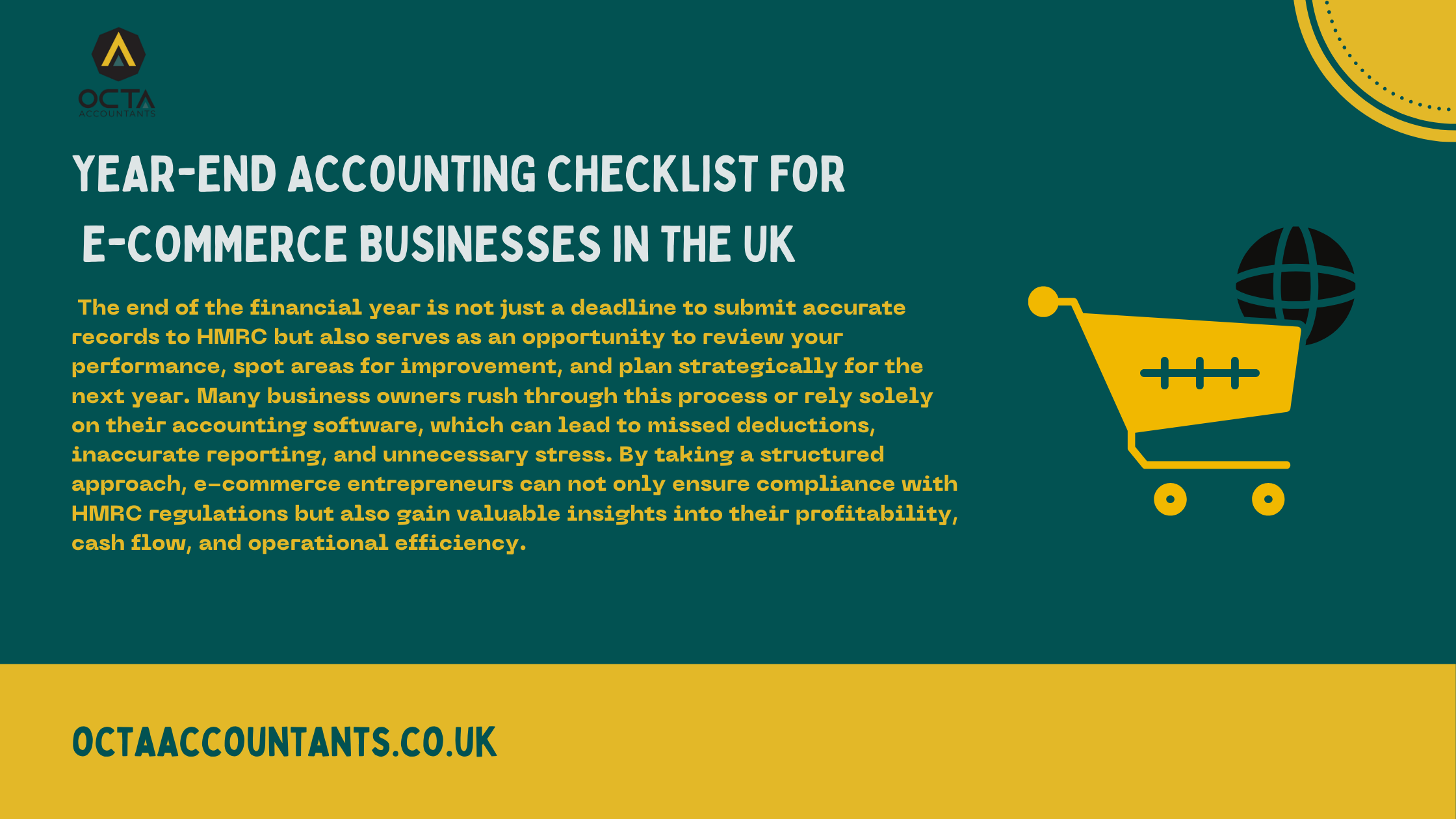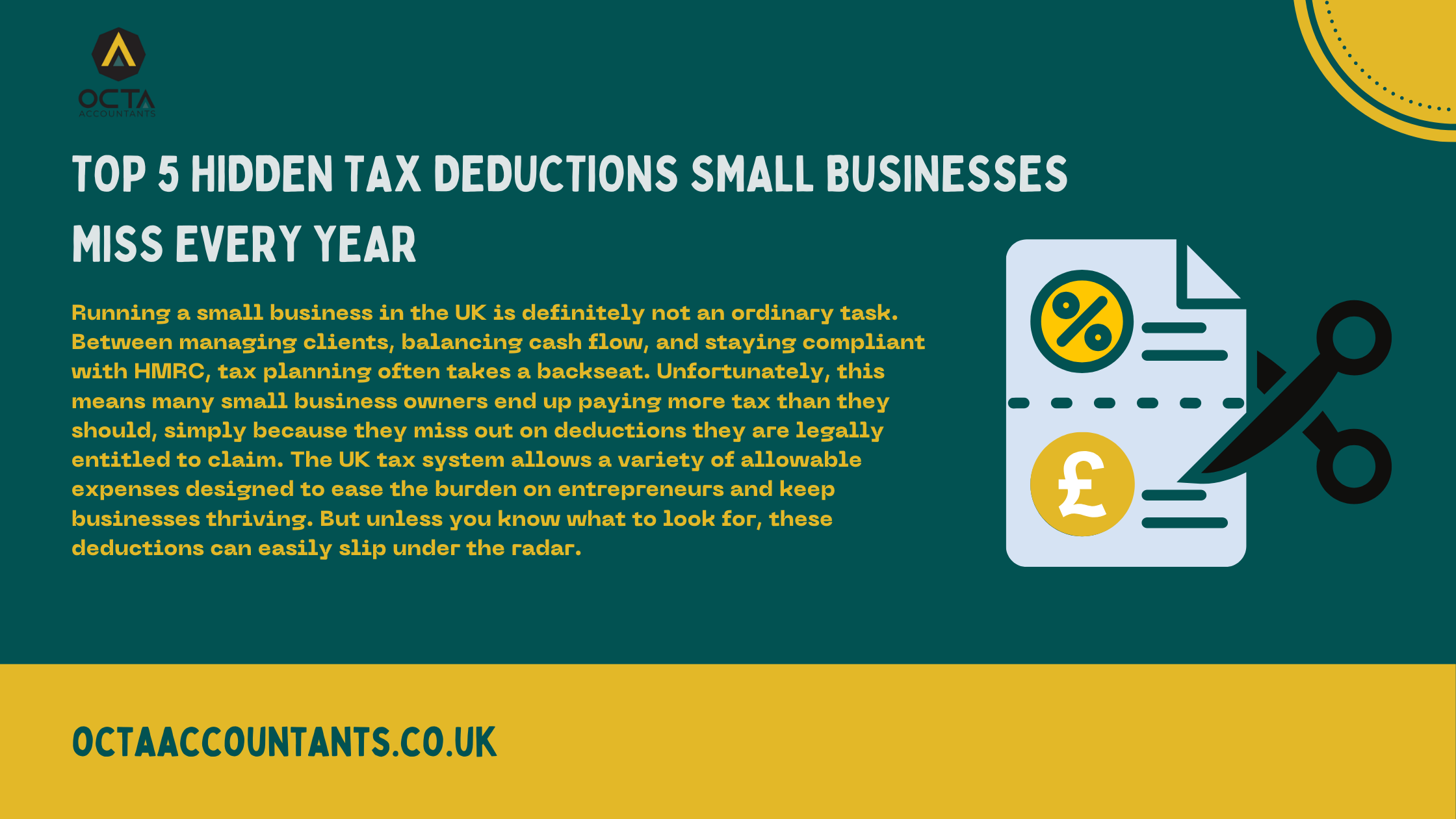The Ultimate Guide to Capital Gains Tax for UK Property Owners

Octa Accountants

7 Min Read

Jan 16, 2024

Company Incorporation
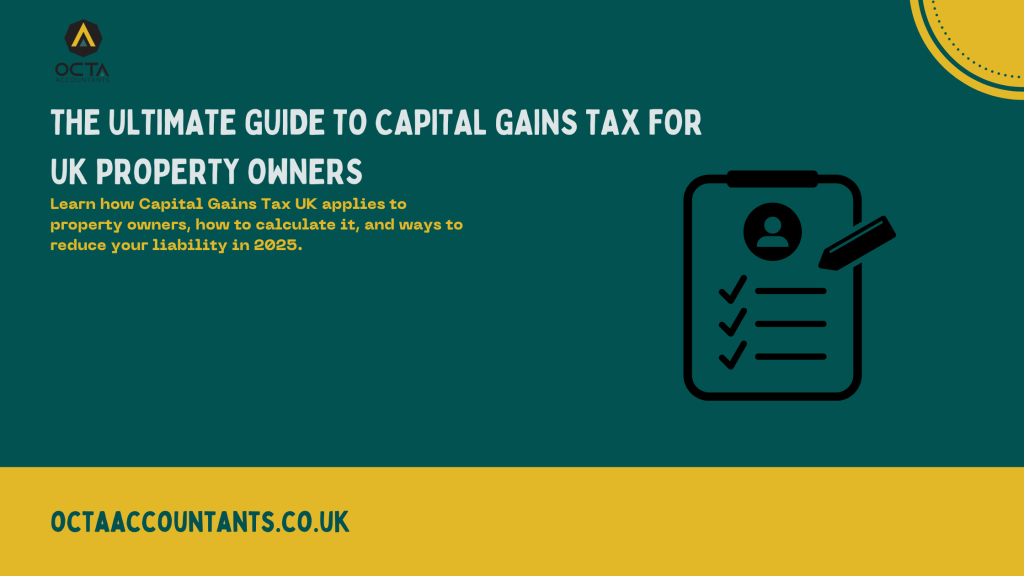

If you own property in the UK and intend to sell it, you may be subject to capital gains tax (CGT), which applies to the profit you make when selling a property that has increased in value. Understanding capital gains tax regulations is critical for financial planning, whether you are a homeowner, property owner, or investor. With recent tax law changes and rising property values, knowing how to calculate, reduce, and pay capital gains tax correctly can help you save money and avoid penalties. Read below for our ultimate guide to capital tax gains in the Uk to know more about what it is and how and when it is applied. By the end of this guide, you will have a thorough understanding of capital gains tax and how it impacts property owners in the UK.
Also Read: 7 Best Blogs For Accountants To Follow
Capital Gains Tax (CGT) is a tax on the profit made by selling an asset that has gained in value. This tax applies to property owners who sell a buy-to-let property, a second house or an inherited property. If you sell your primary house, you are normally free from capital gains tax, if you fulfill certain requirements. However, if you’ve utilized a portion of your house for business or rented it out, some of the profit may be taxed.
When you sell or dispose of a property other than your primary residence, you must pay capital gains tax. Selling your buy-to-let home or selling a second house causes you to pay capital gains tax. Furthermore, giving away property to someone other than your spouse or civil partner, or even transferring property to a trust, triggers CGT. Additionally, conditions like selling inherited property unless it is protected by Private Residence Relief will also be viable for capital gains tax. However, if you sell a property at a loss, you can use the proceeds to offset other capital gains in the same tax year or carry them forward to future years.
Also Read: Will accountants be replaced by AI?
The seemingly overwhelming and daunting task of calculating capital gains tax can be broken down into a few simple and easy steps for convenience.
Step 1: Determine the Gain
The first step is to determine the gain or the profit which is the difference between the sale price or market value if the property is gifted. In case you are selling then it is the difference between the original purchase price. You can deduct allowable costs like SDLT, legal estate agents fee and capital improvements like renovations or extensions.
Step 2: Apply the Annual Exemption
The next step is to apply for the annual exemption. For the 2024/2025 tax year, individuals have a £3,000 CGT allowance. Any gain above this threshold is taxable.
Step 3: Apply the CGT Rate
Then the next step is applying the CGT rate. The rate you pay depends on your total taxable income as a basic rate which is 18% or higher rate which is 24%.
Any taxable property gains must be reported to HMRC within 60 days of completion via the CGT on the UK property account. Payment options include online banking using the reference provided, direct debit or a debit card and through your self-assessment tax return if you have one. Failure to report and pay on time could lead to fines.
The UK government conducts frequent reviews of CGT regulations. Future modifications may include further reducing the CGT yearly exemption with potential rises in CGT rates. New requirements for property owners and second-home owners might be introduced. Before selling your house, it is crucial to stay informed and obtain financial guidance.
Understanding capital gains tax is critical for property owners planning to sell. Making educated financial decisions requires understanding when CGT applies, how to calculate it, and how to decrease your liability. With prospective tax changes in the future, it is critical to plan your property transactions carefully. Whether you’re selling a second home, an inherited property, or a buy-to-let investment, following UK tax regulations will help you avoid penalties and excessive charges.
If you’re having trouble completing P11D forms correctly, seek assistance from an accountant or payroll professional. Professional aid can help you comply with tax regulations and minimize mistakes and fines. It can also aid in streamlining the tax reporting procedure.
Navigating the complexities of eCommerce accounting can be overwhelming, but you don’t have to do it alone. At Octa Accountants, we specialize in helping businesses streamline their financial processes, manage inventory, and stay compliant with tax laws. Whether you’re a small business or a growing enterprise, our expert team is here to ensure your finances are in perfect order—so you can focus on scaling your business.
About Us
Octa Accountants is a one-stop accounting firm that offers a wide range of finance management services.
Our Blogs
How to Automate VAT Returns Without Losing Control
How to Automate VAT Returns Without Losing Control Octa Accountants 7 Min Read Feb 2, 2026 UK VAT Returns Managing VAT returns is one of those tasks that every business…
Year-End Accounting Checklist for E-Commerce Businesses in the UK
Year-End Accounting Checklist for E-Commerce Businesses in the UK Octa Accountants 7 Min Read Jan 21, 2026 UK Accounting Checklist Running an e-commerce business in the UK can be both…
Top 5 Hidden Tax Deductions Small Businesses Miss Every Year
Top 5 Hidden Tax Deductions Small Businesses Miss Every Year Octa Accountants 7 Min Read Jan 14, 2026 Tax Deductions Running a small business in the UK is definitely not…
